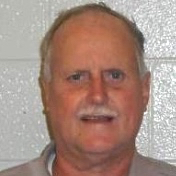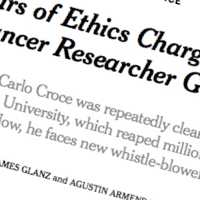Rascals case in brief
In the beginning, in 1989, more than 90 children at the Little Rascals Day Care Center in Edenton, North Carolina, accused a total of 20 adults with 429 instances of sexual abuse over a three-year period. It may have all begun with one parent’s complaint about punishment given her child.
Among the alleged perpetrators: the sheriff and mayor. But prosecutors would charge only Robin Byrum, Darlene Harris, Elizabeth “Betsy” Kelly, Robert “Bob” Kelly, Willard Scott Privott, Shelley Stone and Dawn Wilson – the Edenton 7.
Along with sodomy and beatings, allegations included a baby killed with a handgun, a child being hung upside down from a tree and being set on fire and countless other fantastic incidents involving spaceships, hot air balloons, pirate ships and trained sharks.
By the time prosecutors dropped the last charges in 1997, Little Rascals had become North Carolina’s longest and most costly criminal trial. Prosecutors kept defendants jailed in hopes at least one would turn against their supposed co-conspirators. Remarkably, none did. Another shameful record: Five defendants had to wait longer to face their accusers in court than anyone else in North Carolina history.
Between 1991 and 1997, Ofra Bikel produced three extraordinary episodes on the Little Rascals case for the PBS series “Frontline.” Although “Innocence Lost” did not deter prosecutors, it exposed their tactics and fostered nationwide skepticism and dismay.
With each passing year, the absurdity of the Little Rascals charges has become more obvious. But no admission of error has ever come from prosecutors, police, interviewers or parents. This site is devoted to the issues raised by this case.
On Facebook
Click for earlier Facebook posts archived on this site
Click to go to
Today’s random selection from the Little Rascals Day Care archives….
Click for earlier Facebook posts archived on this site
Click to go to
Today’s random selection from the Little Rascals Day Care archives….
Santa, I know this is an unusual request, but….
 Dec. 14, 2012
Dec. 14, 2012
“Lamb, Nancy and Bill Hart. ‘Pointers on multi-victim, multi-perpetrator cases.’ American Prosecutors Research Institute 1992. Attorneys who prosecuted Little Rascals case offer advice regarding mass molestation cases.”
– Description of an 18-page how-to booklet that surely should be filed under “fantasy” or “horror” – if copies existed at all.
Unfortunately, all seem to have vanished from libraries as well as from booksellers. When I requested a copy from the National District Attorneys Association, parent of the research institute, I was told, “We only serve prosecutors, not (even) other lawyers. But… we haven’t been able to find it. So at this point, we could not even provide it to a prosecutor.”
Immunity of office allows zeal, recklessness to go unchecked

longform.org
Ariel Levy
June 29, 2016
“Compensation is intended in part as a deterrent: a municipality that has to pay heavily for police or prosecutorial misconduct ought to be less likely to allow it to happen again. But it is taxpayers, not police or prosecutors, who bear the costs of litigation and compensation. Prosecutors enjoy almost total immunity in cases of misconduct, even if they deliberately withhold exculpatory evidence from a jury. A 2011 Supreme Court ruling also made it virtually impossible to sue a prosecutor’s office for such violations….”
– From “The Price of a Life: What’s the right way to compensate someone for decades of lost freedom?” by Ariel Levy in the New Yorker (April 13, 2015)
To “deliberately withhold exculpatory evidence” seems all too neatly illustrated in Bob Kelly’s trial. Here’s how the North Carolina Court of Appeals described the prosecution’s actions:
“Judge L. Bradford Tillery, a pretrial Judge, directed the State to file and present for in camera review identifying information, medical and psychotherapeutic files and DSS files with respect to the ‘indictment children’….
“In apparent compliance with Judge Tillery’s order… the State turned over a box of files to the trial court, Judge (Marsh) McLelland presiding. The box contained, inter alia, complete medical notes and therapy notes on the 29 indictment children, 12 of whom testified at defendant’s trial and 17 of whom did not….
“After trial, defendant’s appellate counsel went to the Office of the Clerk of Court for Pitt County to view the exhibits. He opened several boxes containing trial exhibits, none of which were sealed. One of the boxes contained 29 files labeled with the names of the indictment children…. Defendant argues that the files contained undisclosed information that would have been material to the defense.”
To wit, the withheld files were bulging with exculpation – conflicting claims, evidence of hysteria, eyewitness testimony that nothing happened.
Prosecutors H.P. Williams Jr., Bill Hart and Nancy Lamb walked away rebuked by the Appeals Court but otherwise unpenalized. How differently might the Little Rascals case have unfolded had they known their recklessness wouldn’t be shielded by prosecutorial immunity?
![]()
Junior Chandler faces 30th year in prison

NC Dept. of Correction
Junior Chandler
April 4, 2016
Junior Chandler may be the last still-imprisoned victim of the “satanic ritual abuse” day-care panic.
Chandler was a driver for a Madison County, N.C., day care. The prosecutor alleged that Chandler, in the words of appellate attorney Mark Montgomery, “would drive off his route to a park by a river, strip the children of their clothes, troop them down to the river, put them in a rowboat, commit various sexual acts, put them back on the bus and take them home.”
Based almost exclusively on hearsay and no-longer-permissible expert “vouching,” Chandler was convicted in 1987 and sentenced to two life sentences. This month he will begin his 30th year behind bars for a crime that never happened.
![]()
Some journals getting better at correcting mistakes
 March 9, 2017
March 9, 2017
“As a result of complaints, [scientific] journals have been posting notices of problems with Dr. [Carlo] Croce’s papers at a quickening pace. From just a handful of notices before 2013 – known as corrections, retractions and editors’ notices – the number has ballooned to at least 20, with at least three more on the way, according to journal editors….”
– From “Years of Ethics Charges, but Star Cancer Researcher Gets a Pass” by James Glanz and Agustin Armendariz in the New York Times (March 8)
Yet another example of professional journals responding with new vigor to faulty articles.
By contrast, no retraction has ever appeared in those journals that lent credence to testimony by the prosecution’s expert witnesses during the day-care panic. Or perhaps some author or editor still wants to defend the likes of “Stress Responses of Children to Sexual Abuse and Ritualistic Abuse in Day Care Centers” and “Satanic Ritual Abuse: A Cause of Multiple Personality Disorder”?
![]()











0 CommentsComment on Facebook